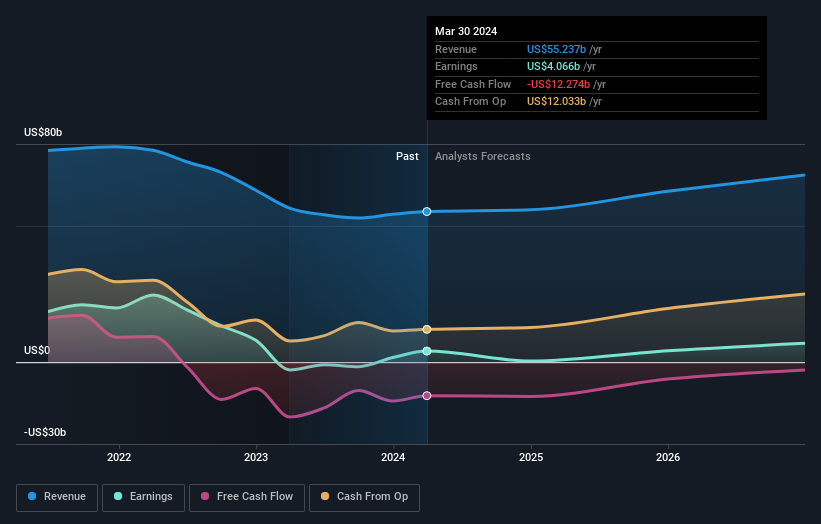Bussiness
When Should You Buy Intel Corporation (NASDAQ:INTC)?

Intel Corporation (NASDAQ:INTC) saw significant share price movement during recent months on the NASDAQGS, rising to highs of US$44.52 and falling to the lows of US$29.85. Some share price movements can give investors a better opportunity to enter into the stock, and potentially buy at a lower price. A question to answer is whether Intel’s current trading price of US$31.23 reflective of the actual value of the large-cap? Or is it currently undervalued, providing us with the opportunity to buy? Let’s take a look at Intel’s outlook and value based on the most recent financial data to see if there are any catalysts for a price change.
See our latest analysis for Intel
What Is Intel Worth?
The share price seems sensible at the moment according to our price multiple model, where we compare the company’s price-to-earnings ratio to the industry average. In this instance, we’ve used the price-to-earnings (PE) ratio given that there is not enough information to reliably forecast the stock’s cash flows. We find that Intel’s ratio of 32.7x is trading slightly above its industry peers’ ratio of 30.82x, which means if you buy Intel today, you’d be paying a relatively reasonable price for it. And if you believe that Intel should be trading at this level in the long run, then there should only be a fairly immaterial downside vs other industry peers. Is there another opportunity to buy low in the future? Since Intel’s share price is quite volatile, we could potentially see it sink lower (or rise higher) in the future, giving us another chance to buy. This is based on its high beta, which is a good indicator for how much the stock moves relative to the rest of the market.
What kind of growth will Intel generate?
Future outlook is an important aspect when you’re looking at buying a stock, especially if you are an investor looking for growth in your portfolio. Although value investors would argue that it’s the intrinsic value relative to the price that matter the most, a more compelling investment thesis would be high growth potential at a cheap price. Intel’s earnings over the next few years are expected to increase by 81%, indicating a highly optimistic future ahead. This should lead to more robust cash flows, feeding into a higher share value.
What This Means For You
Are you a shareholder? INTC’s optimistic future growth appears to have been factored into the current share price, with shares trading around industry price multiples. However, there are also other important factors which we haven’t considered today, such as the track record of its management team. Have these factors changed since the last time you looked at INTC? Will you have enough conviction to buy should the price fluctuate below the industry PE ratio?
Are you a potential investor? If you’ve been keeping tabs on INTC, now may not be the most advantageous time to buy, given it is trading around industry price multiples. However, the optimistic forecast is encouraging for INTC, which means it’s worth diving deeper into other factors such as the strength of its balance sheet, in order to take advantage of the next price drop.
With this in mind, we wouldn’t consider investing in a stock unless we had a thorough understanding of the risks. Every company has risks, and we’ve spotted 2 warning signs for Intel you should know about.
If you are no longer interested in Intel, you can use our free platform to see our list of over 50 other stocks with a high growth potential.
Have feedback on this article? Concerned about the content? Get in touch with us directly. Alternatively, email editorial-team (at) simplywallst.com.
This article by Simply Wall St is general in nature. We provide commentary based on historical data and analyst forecasts only using an unbiased methodology and our articles are not intended to be financial advice. It does not constitute a recommendation to buy or sell any stock, and does not take account of your objectives, or your financial situation. We aim to bring you long-term focused analysis driven by fundamental data. Note that our analysis may not factor in the latest price-sensitive company announcements or qualitative material. Simply Wall St has no position in any stocks mentioned.
Have feedback on this article? Concerned about the content? Get in touch with us directly. Alternatively, email editorial-team@simplywallst.com








:max_bytes(150000):strip_icc()/roundup-writereditor-loved-deals-tout-f5de51f85de145b2b1eb99cdb7b6cb84.jpg)


